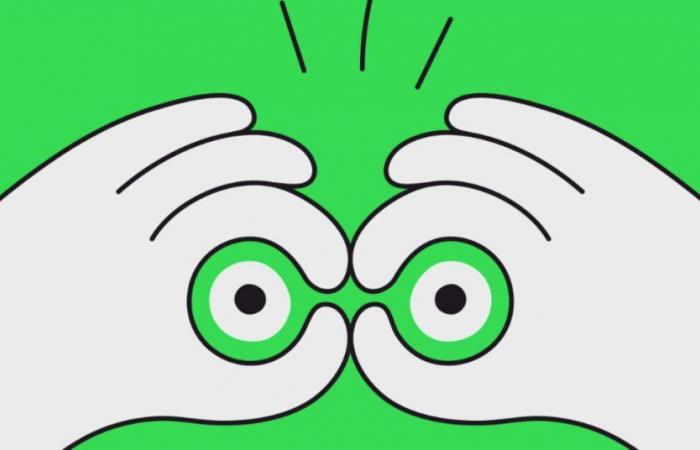➤ Subscribe to Philosophy magazine to have access to all our Bac Philo archives, as well as our magazine, our special issues and our Expresso moduleswhich allow you to learn philosophy in a simple and interactive way!
Introduction
The State can be understood in at least two distinct senses. It is first of all the set of powers instituted to organize life between human beings in the same political community. As such it has a reason for being, it fulfills a function. Therefore, what the State owes us is linked to the reason for which it exists. We must then ask why it exists, why it was created. Is its reason for being minimal? Should it only ensure security between individuals? Or is there a duty for the State in a strong sense, in a moral sense, a duty of well-being for example?
In another sense, the state is the highest human form of power that exists. The State is a master, in the Latin sense of dominus, and it is perhaps first of all to the subjects or citizens to owe something to the State: obedience. Indeed, what can the individual do against the power of the State? If the state owes individuals something, be it security, justice or well-being, how can they ensure that they receive their due? In short, how can the state owe us anything if it is the most powerful form of power there is?
1) The State owes us what it exists for, namely security and justice
The first duty of the State is security. This is the first reason why individuals agree to give up exercising their right to defend themselves. Without a state, and in particular without the force of its police, we can even say that society does not yet exist. Human society is only possible when individuals live in peaceful relationships. The State guarantees this peace, by subjecting each of the members who make up society to its power. Individuals owe obedience to the State, because they are indebted to it for the civil peace that this obedience brings. Hobbes, in the Leviathan, highlights this original relationship between the State and individuals. Unable to live by themselves in peace in the state of nature, subject to the violence of “the war of all against all”, individuals freely renounce their natural right to defend themselves. The State then becomes the master of all, so that no one subjects others to their private law, to their desire.
Hobbes calls this relationship of submission of all to the State justice. “There is no unjust law”, there are only bad laws, that is to say laws which poorly ensure civil peace. The original “social pact”, accepted by everyone with the aim of obtaining civil peace, places the individual in a state of dependence on political power. But this dependence is voluntary, or freely accepted, because these are the minimum conditions from which life is possible between individuals. In this sense, the State owes us nothing, other than what it was established for: security, civil peace, justice. Rather, it is to him that we owe peace, it is we who are indebted to him to live according to civil peace.
2) Nothing obliges the State to do what it is made to do
However, such a genesis of the State is fraught with consequences. Nothing obliges it to respect what it was established for. If there is a duty of the State towards us, understood in the sense of reason for being, there does not exist a moral duty of the State. A moral duty presupposes a law above us which we freely obey. A moral duty presupposes obligation, that is, voluntary obedience. Now there is nothing above the State; nothing obliges him to obey anyone. The State is the highest form of power there is. We historically see states choosing to serve force, preferring oppression and war, with no one able to oppose its power. Augustine shows this in The city of God, where he takes up a famous anecdote, that of the meeting between a bandit leader and Alexander the Great. What differentiates the two is the importance of the fleet, it is the size of the power. Alexander is not more just than the bandit, he is above all stronger.
In this sense, the State owes us nothing. Because he is truly a peerless master, his dominance can rest solely on pure power. Also, so that this relationship between individuals and the State does not lead to immediate distrust among all individuals, the State presents its strength as justice. Pascal sums it up in this sentence of Thoughts : “And thus, not being able to make what is just strong, we made what is strong just. » If we understand the relationship between State and individuals as a pure balance of power, then the State owes us only the appearance of justice, in order to obtain the consent of those over whom its domination is exercised. Clearly, the State owes us nothing, because it is in no way obliged to beings weaker than itself.
3) Because nothing obliges the State towards us, we must constrain it, on the one hand by dividing its powers, on the other hand by remaining vigilant in the face of its domination
The State owes us nothing, in the sense that it is not obliged by anything to do the good of the greatest number rather than its own power. How can we then explain the life of democratic peoples? How can we explain that individuals are not totally helpless in the face of the power of the State? The major reason is that the State cannot be limited by any force other than itself. To reduce the power of the State, it is enough to divide its powers. Montesquieu, in Of the spirit of Laws, clearly shows that the only way to limit state power is to divide its three major powers: executive, legislative and judicial. Since nothing obliges the State, it can only be limited and constrained from within. The division of powers brings about control of the State over itself, which really forces it to respect the political principles which govern its institution. It is because the State owes us nothing that we must establish internal limits to its domination.
The institutional response is not enough. When individuals lose interest in political and human affairs, the state, although exercising divided power, can still reign unquestioningly. Tocqueville, in Democracy in America, clearly shows that the main danger of democratic societies is the disinterest of citizens in politics. The game of institutions is not everything. Tyranny is possible in democracy, from the moment everyone turns away from the spirit of freedom, from political commitment, in the name of individual security. Tocqueville demonstrates that there is a real duty as a citizen, that of exerting constant pressure against the State. Because the state owes us nothing, we owe it to ourselves not to let it exercise power in a tyrannical manner. This vigilance is never guaranteed to succeed, but it is at least a minimum condition for preventing the tyrannical tendencies of the state.
Conclusion
We wondered if the state owed us something. At first glance, the State owes us what it was established for: guaranteeing civil peace, exercising power with a view to justice. However, it appears very clearly that the power of the State is such that nothing can force it to respect the “social pact” which gave it birth. History is full of examples of tyrannical states, ruled by the will of a few, which were only truly defeated by the superior power of rival states. Therefore, because the State owes us nothing, it is up to us to constrain its power. It appeared to us that only a division of the powers of the State could limit its power and force it to respect the political principles that we decided to establish among ourselves. Even more, only the desire for freedom and independence of individuals from the State can force it to roll back its domination. The State, therefore, owes us nothing, and this is the reason why what we obtain from it is of the order of conquest, and not of a gift.
Find all the answers to the Bac Philosophy 2024 test:
➤ General sector:
1. Can science satisfy our need for truth?
2. Does the state owe us something?
3. Explanation of text: Simone Weil, The working condition
➤ Technological sector:
1. Is the artist in control of his work?
2. Is nature hostile to man?
3. Explanation of text: Plato, Laws
Expresso: interactive courses
There it’s finished…
When love ends, perhaps everything is not said. Because understanding the romantic breakup – its causes, its course, its consequences, also means diving as close as possible to what we expect, deep down, from love. To those who doubt a little, a lot, or not at all; to those who are still suffering and to those who are going the English way… This Expresso is made for you!






